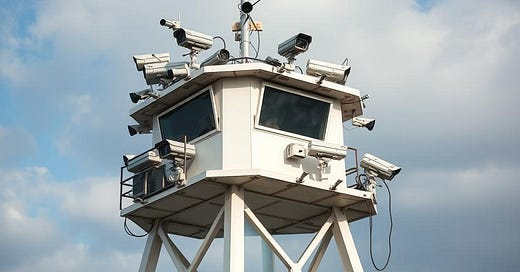The Disappearing Line Between Security and Surveillance
When national interest becomes the excuse for mass monitoring, civil liberties quietly disappear
Every democracy must protect its people.
But what happens when protection turns into preemptive control?
Across the globe, and increasingly in India, we are seeing a rise in surveillance practices disguised as “national security.” From biometric tracking to facial recognition at railway stations, drone mapping of urban slums, and real-time social media scanning, we are entering an era where the citizen is always seen, rarely heard.
The problem is not surveillance itself.
It is unchecked surveillance, without robust legal frameworks, transparent audits, or independent oversight.
India lacks a dedicated surveillance law. Most snooping operations rely on outdated provisions under the Telegraph Act and the IT Act, laws drafted long before the age of AI and predictive profiling.
The danger lies in normalising the argument:
“If you have nothing to hide, you have nothing to fear.”
But this argument erases the power imbalance. It assumes the state will always act fairly; a dangerous assumption in any democracy.
If security becomes an excuse to monitor everyone, then liberty belongs to no one.
🔍 Want more sharp, rights-focused takes on law and liberty? Subscribe now.
📢 Share this if you think surveillance needs more law, not less oversight.
💬 How do you feel about India’s surveillance expansion? Let’s talk in the comments.
#JusticeWithAngana #SurveillanceState #RightToPrivacy #NationalSecurityVsFreedom #SaturdayLegalLens #WomenInLaw #DigitalRights





